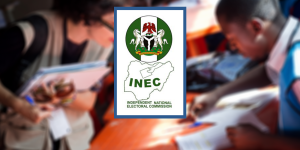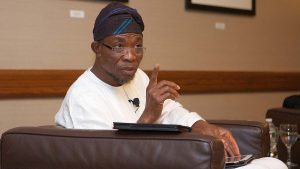CORONAVIRUS: THE CONNECTION BETWEEN HEALTHCARE, POLITICS AND ECONOMICS
Coronavirus has made healthcare to be a critical dimension of human rights and citizenship. The world has long been questioning where the true power lies. Does economy drive politics or the other way around? The coronavirus spread has shown that healthcare is the main power that shapes the economy and politics at a time when a disease brought nations to a standstill. In the heat of coronavirus global crisis more sudden and severe than anything in living memory, economic orthodoxies are getting tossed aside at a furious pace. Some of them may be gone for good.
Public debt, for example, has often been seen as a drag on economies — but right now it’s their lifeline. The coronavirus has shut down swaths of private business all over the world. Whatever the prior views on budget deficits, world leaders have been forced to fill the gap by channeling cash to households, businesses and markets — strengthening safety nets that are paid for out of the public purse, and improvising some new ones. With government spending helping to steer countries through the pandemic, it may not be easy to turn off the taps afterward.
In this year 2020, Healthcare has become a major factor in making economic and political decision, and healthcare plays major role in politics which is a continuous struggle for power among competing interests. Looking at health through the lens of political and economic determinants means analysing how different power constellations, institutions, processes, interests, and ideological positions affect health within different political systems and cultures and at different levels of governance. Bambra et al provide three arguments why health is political1: health is unevenly distributed, many health determinants are dependent on political action.
Healthcare, Politics and Economics have always been closely related. Coronavirus and Modern communications technologies have made this relationship even closer. Power is at the core of politics and economics is often used as a tool to increase political power. These are some ways in which health, politics and economics are closely intertwined. The Role of Economics in Elections, Economics plays a huge role in elections.
The connection between the coronavirus pandemic and the collapse of the global market is even more significant for all countries. The virus also has major health implications for the political, economics and sectarian dimensions of the global conflicts. Covid-19 highlights the extent to which health, politics and economics are intertwined.
The coronavirus has hit the Africa at a time when the region is already burdened with multiple problems, including a series of long-running conflicts, sectarian tension, economic crises, and widespread political unrest. In this paper, Covid-19 pandemic has major healthcare impact on, and likely implications for, the global economy. With governments now locking down their populations and suspending international flights, the outlook is particularly grave due to a series of deep, long-running crises across the world that have already severely debilitated states’ capabilities.
The President, Major General Muhammadu Buhari (retd.), on March 29, addressed the nation and unveiled the strategies by his regime to curtail the spread of the coronavirus pandemic in Nigeria, which started in Wuhan, Hubei Province in China late 2019. In the address, Buhari adopted a similar strategy of lockdown being used in countries like Italy, Spain, the United States of America and the United Kingdom to tackle the virus, which has halted the economies of nations around the world.
Due to economic uncertainty arising from the Coronavirus pandemic, the Federal Government is seeking a total of $7.05billion (or N2.679 trillion at N380/$) from multilateral financial institutions and the Nigeria Sovereign Investment Authority (NSIA) to mitigate the impact of the virus on the economy. A breakdown of the funds indicates that $3.4billion is being sought from the International Monetary Fund (IMF), $2.5billion from the World Bank and $1billion from the African Development Bank (AfDB), an unspecified amount from the Islamic Development Bank, as well as $150 million to be drawn from the NSIA Stabilisation Fund to support the June 2020 Federation Account Allocation Committee (FAAC) disbursement to the three tiers of government in the federation.
There is no doubt that Nigeria, like many other countries affected by the novel healthcare- Coronavirus, is passing through a difficult time that require all hands to be on deck to contain the deadly virus. The COVID-19 pandemic has exposed the vulnerabilities of many economies to both internal and external shocks. Although Nigeria had passed through a similar phase in 2009/2009 as well as in 2015/2026 that culminated in recession, our current lower fiscal buffers seem to make the present challenges more daunting. The decline in international oil price and domestic production may be more severe if the spread of the virus escalates. Already, Nigeria’s external reserves have slipped below $34billion, lowest in 29 months, according to data from the Central Bank of Nigeria (CBN).
The coronavirus lockdown, as expected, has paralysed business activities and the informal sector of the economy, where a huge percentage of the population in the country is engaged has been badly affected. With the movement restriction order, millions of people who earn their living from proceeds of their daily activities are being battered by hunger. While many resort to begging to survive, some youths, especially those with criminal tendencies, have been moving from house to house, terrorising helpless and defenceless citizens, who are already pummelled by hunger.
This is not a joke. It is a matter of life and death. Mosques in Makkah and Madina have been closed. The Pope celebrated Mass on an empty St. Peter’s Square. The famous Notre Dame cathedral in Paris held Easter Mass with less than 10 people. India, Italy and France are in complete lockdown. Other countries are in the process of following suit. We cannot be lax.
Nigeria’s 1999 Constitution as amended says the welfare and security of citizens shall be the primary purpose of government. COVID-19 pandemic is a clear test case of the import of that provision. Of the desirable good things of life, good health and longevity are the ultimate. It is the responsibility of governments to promote good health for all.
The United Nations in its different protocols and resolutions lends credence to this. Lockdown by government at federal and state levels are a vehicle to promoting good health, longevity and avoid premature deaths by preventing community spread of COVID-19. We should remind ourselves that the majority of Nigerians operate at the informal sector of the economy with all its vicissitudes and imponderables. Lockdown implies freezing of income, and unemployment for majority of Nigerians.
Inwalomhe Donald writes via inwalomhe.donald@yahoo.com
![]()



